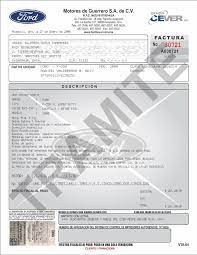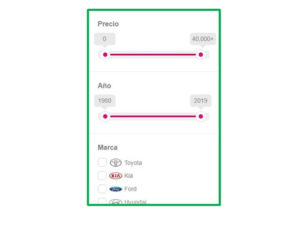Unlocking Your Car's True Worth: Your Ultimate Guide To Checking Its Value
Why Knowing Your Car's Value is Crucial
Understanding your car's market value isn't just about curiosity; it's a strategic move that can save or make you money. * **Selling Your Car:** If you're selling privately, an accurate valuation helps you set a competitive price that attracts buyers without underselling your asset. Overpricing can deter potential buyers, while underpricing means leaving money on the table. * **Trading In:** When you trade your car into a dealership, knowing its value gives you leverage. You can compare the dealer's offer against independent valuations, ensuring you receive a fair trade-in credit towards your new purchase. * **Buying a Car:** If you're in the market for a used car, checking its value helps you determine if the asking price is reasonable for its condition, mileage, and features. * **Insurance Purposes:** Your car's value can affect your insurance premiums and the payout you might receive in case of an accident or theft. An up-to-date valuation ensures you have adequate coverage. * **Budgeting:** For financial planning, knowing your car's current worth helps you understand your assets and can inform decisions about future vehicle purchases.Key Factors Influencing Your Car's Value
A car's value isn't static; it's a dynamic figure influenced by a multitude of factors. Understanding these elements will help you interpret valuation reports and even take steps to maximize your car's worth. * **Make, Model, and Year:** These are the foundational elements. Newer cars generally hold more value, though some classic or highly sought-after models can defy typical depreciation curves. The brand and specific model also play a huge role, with some marques retaining value better than others. * **Mileage:** This is one of the most significant depreciation factors. High mileage typically indicates more wear and tear, leading to a lower valuation. Low mileage for its age, conversely, can boost value. * **General Condition (Interior & Exterior):** * **Exterior:** Are there dents, scratches, rust, or faded paint? Are the tires in good condition with sufficient tread? * **Interior:** Is the upholstery torn or stained? Are there signs of excessive wear? Does everything (windows, AC, radio) work as it should? A clean, well-maintained interior signals a cared-for vehicle. * **Mechanical Condition:** A car with a clean bill of health, no warning lights on the dashboard, and a history of regular maintenance will fetch a higher price. Any known mechanical issues will significantly reduce its value. * **Optional Features and Trim Level:** Premium features like a sunroof, leather seats, advanced navigation systems, upgraded sound systems, or specific safety packages can add value. Higher trim levels generally command better prices than base models. * **Maintenance History:** A complete and verifiable service history shows that the car has been well-cared for, instilling confidence in potential buyers and often leading to a higher valuation. * **Location:** Market demand can vary by region. A car that's popular in one state might be less so in another, affecting its local market value.Top Online Resources to Check Your Car's Value
For the U.S. market, several highly reputable online platforms provide free, instant car valuations. These tools leverage vast databases of sales data, market trends, and sophisticated algorithms to give you an accurate estimate. 1.Kelley Blue Book (KBB) – "El Libro Azul"
* **The Gold Standard:** Kelley Blue Book, often referred to as "El Libro Azul" in Spanish-speaking communities, is arguably the most widely recognized and trusted reference for car values in the United States. It's the go-to source for both new and used car prices, widely consulted by consumers, dealers, and financial institutions. * **Comprehensive Data:** KBB offers values for trade-in, private party sale, and even certified pre-owned vehicles. It provides detailed explanations of how condition affects value. * **Ease of Use:** You can easily consult Kelley Blue Book online, including versions in Spanish, to find your car's value in just minutes. The process typically involves filling out a simple form. 2.Edmunds
* **Trusted Authority:** Edmunds is another highly respected and trusted website for car valuations. Like KBB, it provides comprehensive data and insights into the automotive market. * **Market-Driven Valuations:** Edmunds' valuation tool considers recent sales data, regional demand, and vehicle specifics to provide an accurate estimate for both trade-in and private party sales. 3.CarGurus
* **Instant Market Value (IMV):** CarGurus stands out with its "Instant Market Value" (IMV) calculation. They use proprietary algorithms that analyze millions of used cars listed on their platform daily. This real-time data allows them to provide a highly current and precise market valuation. * **Transparency:** CarGurus often shows you how their IMV compares to actual dealer listings, giving you a clear picture of what similar cars are selling for. 4.NADAguides (J.D. Power)
* **Industry Standard:** NADAguides, now part of J.D. Power, is another industry-standard resource. It's frequently used by dealerships and financial institutions for vehicle appraisals. * **AI and Updated Data:** Their tools often utilize artificial intelligence and regularly updated data to provide reliable valuations, covering a wide range of vehicles. 5.AI-Powered Valuation Tools (e.g., Super Tasador de Coches.com)
* **Emerging Technology:** The market is seeing more tools like "Super Tasador de Coches.com," which are free and leverage AI to calculate a used vehicle's market value. These tools are designed to be fast, easy to use, and require minimal input, often just basic vehicle details.How to Use Online Car Valuation Tools Step-by-Step
The process for getting a free online car valuation is straightforward and largely similar across most platforms: 1. **Visit the Website:** Go to the official website of your chosen valuation tool (e.g., Kelley Blue Book, Edmunds, CarGurus). 2. **Enter Vehicle Information:** * You'll typically start by selecting the **type of vehicle** (car, truck, SUV, motorcycle). * Then, you'll enter the **make, model, and year** of your car. * Some sites might ask for your **ZIP code** to factor in regional market differences. 3. **Specify Trim Level and Options:** Select the exact trim level (e.g., LX, EX, Touring) and any significant optional features your car has (e.g., navigation system, premium audio, sunroof, specific wheel packages). These can significantly impact value. 4. **Input Mileage:** Provide your car's current odometer reading. Be as accurate as possible. 5. **Assess Condition:** This is a crucial step. You'll usually be asked to describe your car's condition, often by selecting from categories like "Excellent," "Very Good," "Good," "Fair," or "Poor." Be honest! The tools will guide you on what each category entails (e.g., "Excellent" means no mechanical issues, spotless interior/exterior, perfect maintenance records). 6. **View Your Valuation:** After submitting the information, the tool will instantly generate an estimated value for your car, often providing different figures for trade-in value versus private party sale value.Beyond Online Tools: Professional Appraisals
While online tools are incredibly convenient and accurate for most common vehicles, there are instances where a professional appraisal might be beneficial: * **Classic or Collector Cars:** These vehicles often have unique market dynamics that online algorithms might not fully capture. * **Highly Modified Vehicles:** Significant aftermarket modifications can sometimes add or detract from value in ways that standard tools can't assess. * **Vehicles with Significant Damage:** If your car has been in a major accident or has extensive mechanical issues, a professional can provide a more nuanced assessment of its diminished value. * **Disputes or Legal Reasons:** For insurance claims, divorce settlements, or estate planning, a certified appraisal might be required. * **Peace of Mind:** If you're unsure about the online valuations or simply want an expert opinion, a professional appraisal offers a detailed inspection and a verified valuation. You can "Pide una evaluación a profesionales" (ask professionals for an evaluation) at dealerships, independent appraisal services, or even some specialized mechanics.Tips for Maximizing Your Car's Value
Once you know your car's value, you'll want to ensure you get the "máxima cantidad de dinero posible" (maximum amount of money possible). Here are some tips: * **Cleanliness is Key:** Detail your car, inside and out. A sparkling clean car makes a strong first impression. * **Address Minor Repairs:** Fix small dents, scratches, and any dashboard warning lights. These seemingly minor issues can significantly impact a buyer's perception and your car's perceived value. * **Gather Maintenance Records:** A well-organized folder of service records proves your car has been consistently maintained. * **Take Great Photos:** If selling online, high-quality, well-lit photos from multiple angles are crucial. * **Be Honest About Condition:** While you want to present your car in the best light, being transparent about its condition builds trust with buyers. * **Negotiate Confidently:** Knowing your car's true market value empowers you to stand firm on your price and negotiate effectively, whether with a private buyer or a dealership.Summary
Knowing how to check your car's value is an indispensable skill for any car owner. It's the first step towards a fair and successful transaction, whether you're selling, trading, or simply assessing your assets. By leveraging trusted online resources like Kelley Blue Book, Edmunds, CarGurus, and NADAguides, and understanding the key factors that influence a vehicle's price, you can quickly and accurately determine your car's worth. Remember to be thorough in providing details about your car's condition and mileage, and consider a professional appraisal for unique or complex situations. With this knowledge, you're well-equipped to navigate the automotive market with confidence and secure the best possible value for your vehicle.
¡Descubre ahora el valor de mercado de tu coche!

Factura de carro -【¿Cómo checarla?】

¿Cómo saber el Valor de mi Auto? Todos los detalles aquí